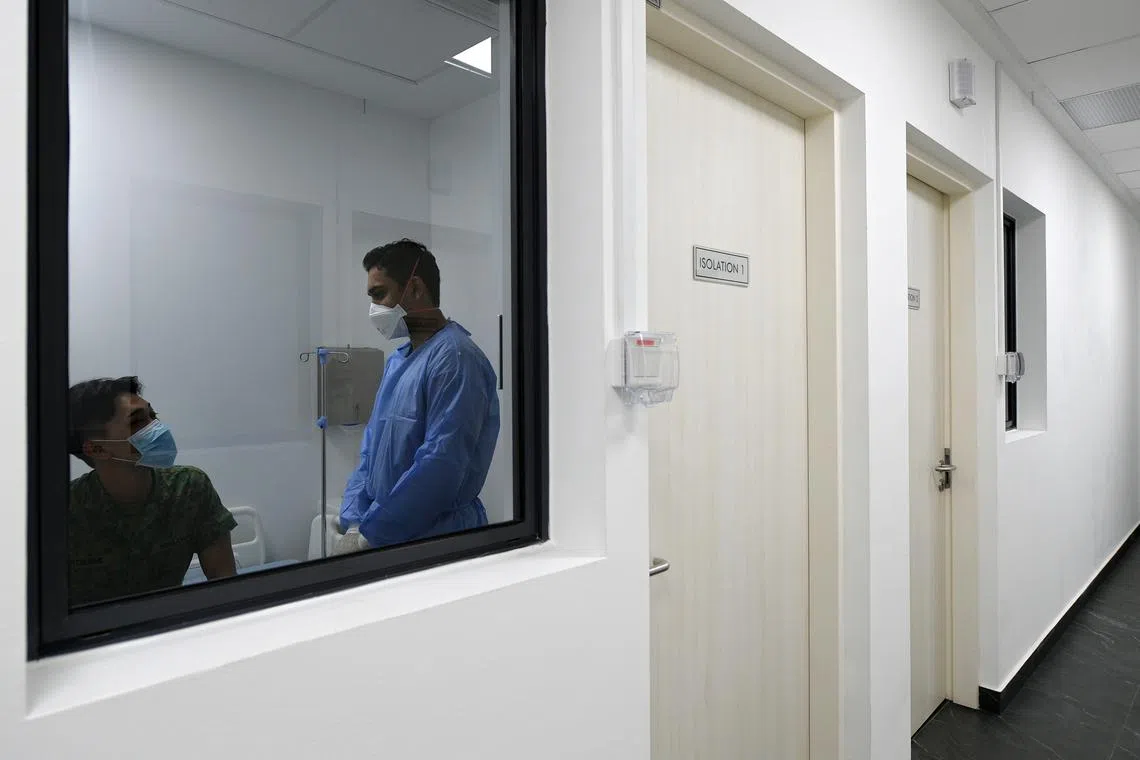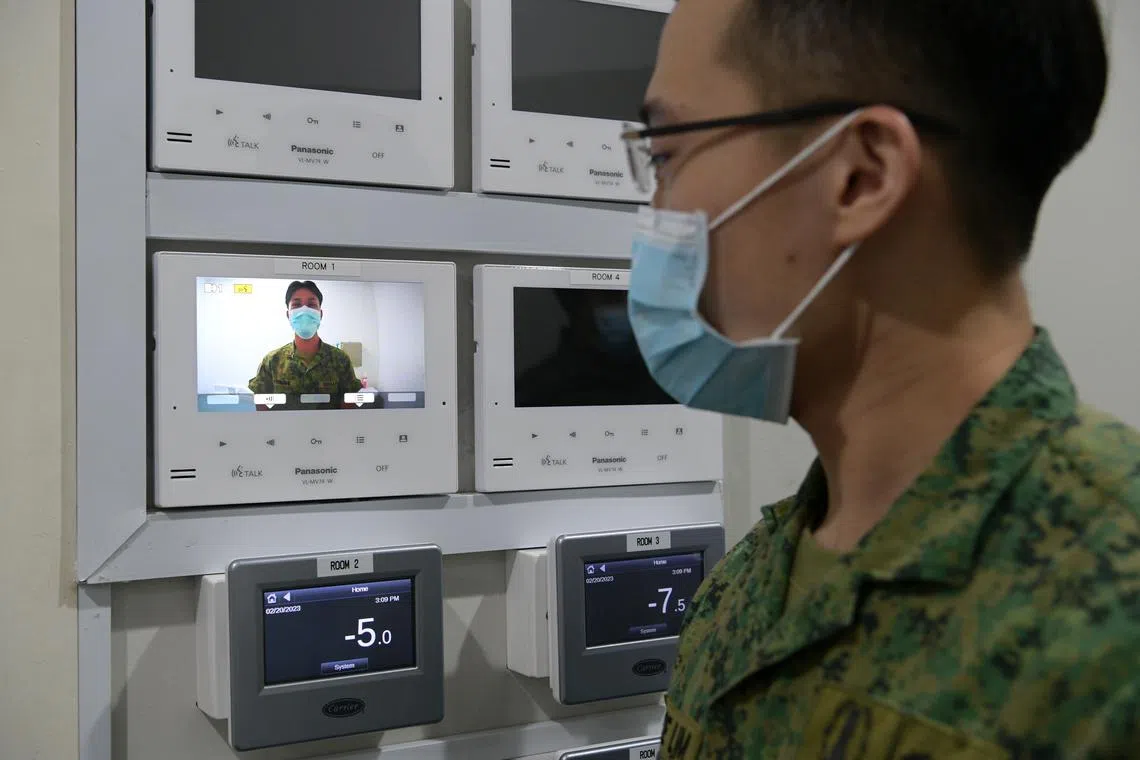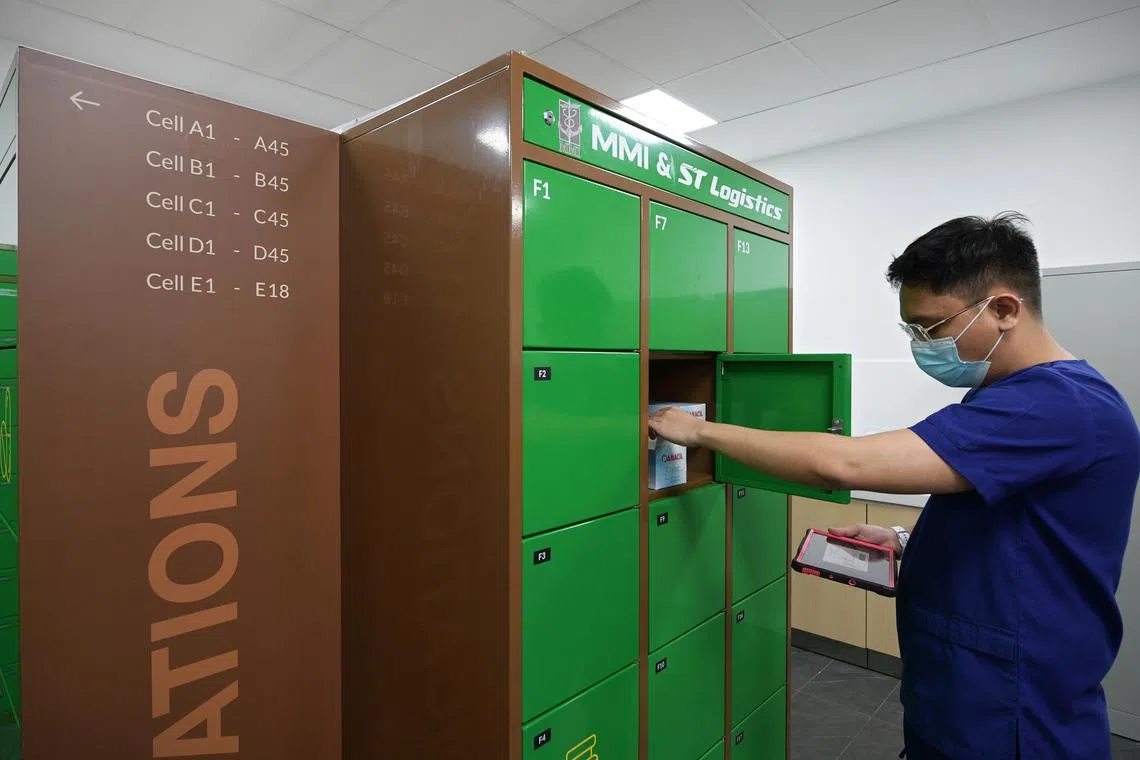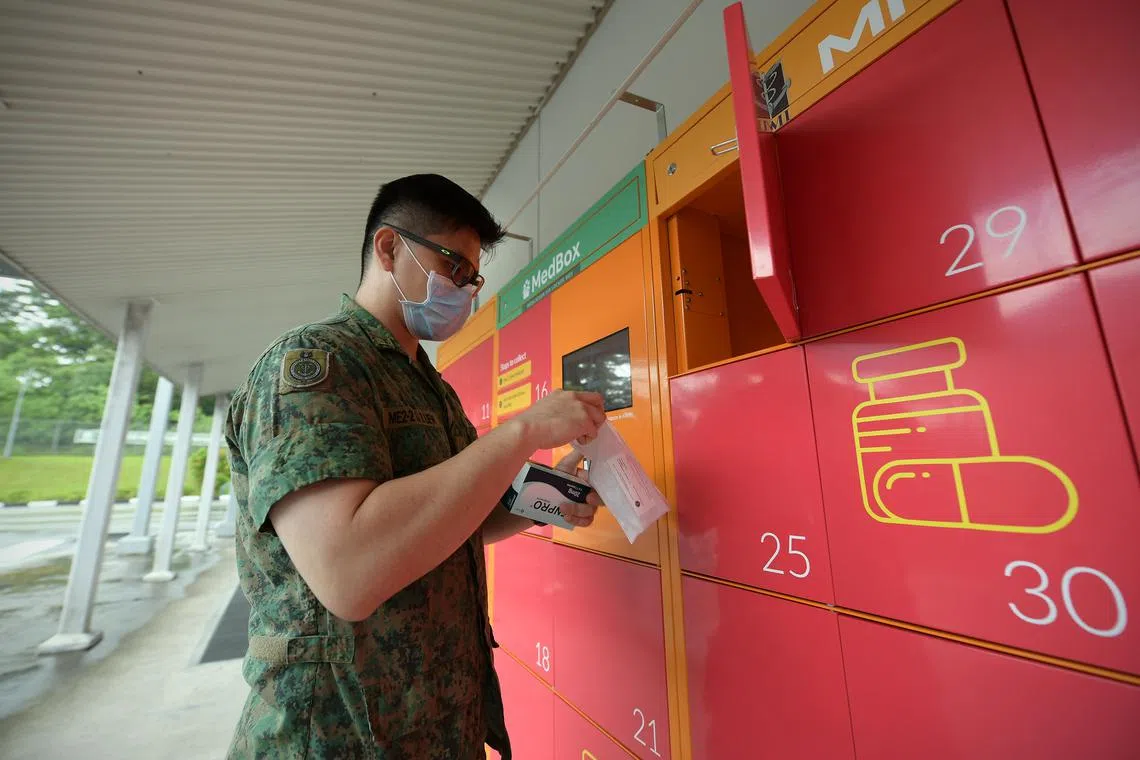SAF healthcare hub launched at Kranji Camp III
Sign up now: Get ST's newsletters delivered to your inbox
SINGAPORE - The first of six one-stop healthcare hubs for service personnel in the Singapore Armed Forces (SAF) was officially launched at Kranji Camp III on Monday.
The Kranji Regional Health Hub (KRHH), which has been operational since September 2022, is a two-storey medical facility that has enhanced medical, dental, specialist and diagnostic capabilities under one roof.
It will serve as a central node for health services for the SAF camps in the north-western region, supporting Kranji camps I, II and III, Mandai Hill Camp, SAF Detention Barracks and Stagmont Camp.
Six Regional Health Hubs (RHHs) will be eventually established across Singapore, with the second at NS Hub in Bukit Gombak expected to be ready by 2024.
These hubs will offer enhanced medical services such as dental, radiological, laboratory, physiotherapy and mental wellness support. This is in addition to routine primary healthcare and emergency services.
Each RHH will cater for the specific needs of the SAF units in the surrounding camps.
A Ministry of Defence spokesman said the consolidation of healthcare services under one roof optimises resources by reducing duplicative processes, streamlining ground operations and improving logistics efficiencies.
“For service personnel, it provides greater accessibility to a wider suite of services, thereby reducing the frequency of trips service personnel have to make and improving the timeliness of medical consultations. In the long run, it enhances patient quality of care and experience,” said the ministry spokesman.
When Private Vansh Bagaria, 18, twisted his ankle on a morning run during his military police basic course last December, he was able to get an X-ray at KRHH within an hour that confirmed he did not have a fracture.
Without the facilities at KRHH, the national serviceman, who was staying at Kranji Camp I, would have had to wait some four hours at the nearest hospital emergency department for a diagnosis, while accompanied by a transport operator, a medic and his commander.
“Having that efficiency and not having to be sent to another hospital really speeds up the process, and really reassured me,” said Pte Bagaria, who was later diagnosed with a ligament tear.
After officiating the launch of KRHH, Senior Minister of State for Defence Heng Chee How told reporters that the health and fitness of the SAF are of paramount importance, as they reflect its ability to mobilise.
“The Kranji Regional Health Hub brings together the latest in technology and management processes... with the aim of bringing more convenience to (patients and service personnel). At the same time, in doing so, it upkeeps the availability of the manpower resources, because you take out the inefficiencies of the system,” said Mr Heng.
With 10 consultation rooms, KRHH has a higher patient capacity than primary healthcare services at existing camp medical centres.
There are also increased emergency and treatment capabilities, with two resuscitation bays, two treatment rooms and a body cooling unit.
The medical facility was also designed to be pandemic-ready, and has features that are a first for the SAF, such as negative-pressured consultation and isolation rooms that can segregate airflows to minimise cross-contamination risks.
Isolation rooms are equipped with video intercom systems to facilitate remote communication between medical staff and patients.

Isolation rooms at the Kranji Regional Health Hub.
ST PHOTO: NG SOR LUAN

The isolation rooms are equipped with video intercom systems to facilitate remote communication between medical staff and patients.
ST PHOTO: NG SOR LUAN
There are also dedicated external toilets for potentially infectious patients, and an external dispensary window so potentially infectious patients can collect medication outside KRHH.
KRHH will serve as a test bed to pilot innovative features to improve healthcare delivery and patient experience in the SAF.
One initiative is the Medical Dispensary System, where the stocking of medication and backend processing are outsourced to ST Logistics instead of having medics conduct manual inventories.
Patients are also automatically dispensed the right medicine once the doctor sends through an electronic prescription.

The Medical Dispensary System, where the stocking of medication and backend processing is outsourced to ST Logistics instead of having medics conducting manual inventories.
ST PHOTO: NG SOR LUAN
“It eliminates the risk of dispensing errors such as giving the wrong medication, because the system contains information such as what type of drug, lot number and expiry date,” said dispensary medic Ahmad Suhaidi Mohd Sukor.
Another initiative is the MedBox, a smart locker system located outside KRHH that will allow service personnel to collect medications at their own convenience.
The 24/7 self-collection service will further complement teleconsultation services, eliminating the need for patients to wait for their medications at KRHH.

The MEDBOX, a smart locker system located outside KRHH that will allow service personnel to collect medications at their own convenience.
ST PHOTO: NG SOR LUAN



